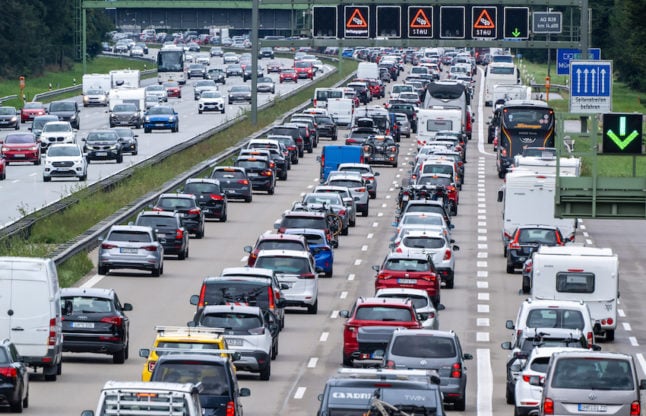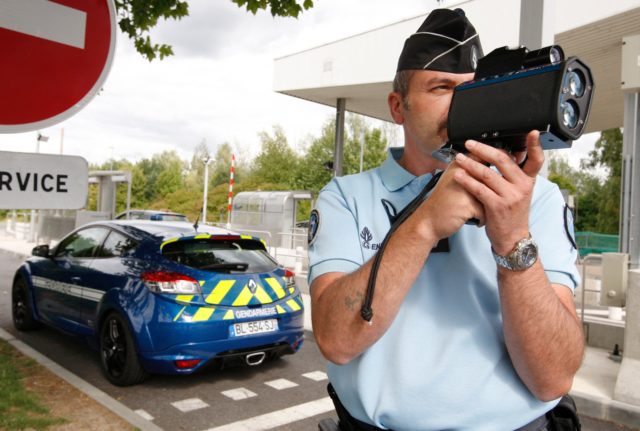German motoring association ADAC said drivers in southern Germany were likely to encounter traffic jams to coincide with the end of the summer season and the start of the school year.
Besides day-trippers and other holiday-makers, the association predicts that many motorists will be traveling to the IAA Mobility Fair in Munich this weekend.
Several highway sections across Germany could experience backlogs, including the A8 to between Salzburg, Munich and Stuttgart and the A6 between Heilbronn and Nuremberg.
In neighbouring Austria, the summer holidays are also coming to an end. Drivers returning to Germany can expect crowded roads on the traditional holiday highways. These include the Tauern, Fernpass, Arlberg, Rheintal, Brenner, Karawanken, and Gotthard routes, according to reports.
READ ALSO: When are Germany’s state and national holidays in 2023?
Returning travellers are advised to drive against the traffic flow and avoid peak times, such as Saturday and Sunday afternoons, according to an ADAC spokesperson. If possible, travellers should leave early or drive late at night, but only if well-rested, the spokesperson advised.
Between the end of June and the start of August, schools around Germany start heading on their summer break – or Sommerferien. Each state makes their own rules on this, with North Rhine-Westphalia usually among the first to go on holiday and Bavaria and Baden-Württemberg usually the last.
READ ALSO: 14 words and phrases that perfectly describe the German summer



 Please whitelist us to continue reading.
Please whitelist us to continue reading.
Member comments